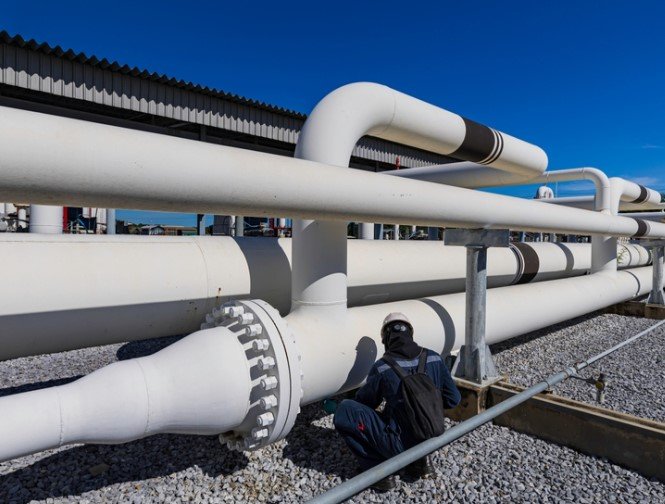Egypt and Cyprus have signed key agreements to develop the Cronos natural gas field, paving the way for gas exports from Cypriot waters to Egyptian facilities. This move, announced on October 21, 2025, boosts energy ties between the two nations and aims to enhance regional security amid growing global demand.
Historic Agreement Signed in Limassol
Officials from Egypt and Cyprus gathered in Limassol for the signing during the East Mediterranean Energy Conference. The event featured Egypt’s Petroleum Minister Karim Badawi and Cyprus’ Energy Minister George Papanastasiou.
These pacts build on earlier talks between the presidents of both countries. They focus on transporting gas from the Cronos field to Egypt for processing and export.
The agreements involve major players like Eni and TotalEnergies, who operate the field. This step follows a host government deal from February 2025.

Eni discovered Cronos in 2022 using a drillship, with appraisal in 2024 confirming reserves over 2.5 trillion cubic feet. The field sits in Cyprus’ Block 6, at water depths around 2,300 meters.
Key Details of the Commercial Pacts
The deals outline frameworks for gas transport, processing, and liquefaction using Egypt’s infrastructure. Gas will flow to the Zohr facilities offshore Egypt, then to the Damietta LNG plant for export, mainly to Europe.
One agreement covers handling and transportation, signed by Egypt’s Natural Gas Holding Company and the Eni-TotalEnergies consortium. Another sets initial tariffs for the project.
These steps enable first gas production by late 2027. The pipeline will connect directly to Port Said in Egypt, with estimated costs around $4 billion.
Officials expect the project to refine during design phases, leading to a final investment decision soon.
Background on the Cronos Discovery
Cronos emerged as a major find in Cyprus’ exclusive economic zone. It joins other fields like Aphrodite, operated by Chevron, which also ties into Egyptian plans.
Exploration ramped up in recent years, driven by the need for alternative energy sources after global disruptions. Cyprus aims to become an export player with combined reserves from multiple discoveries.
The field’s name draws from Greek mythology, symbolizing time, but its real value lies in practical energy gains. Appraisal wells in 2024 boosted resource estimates, making development viable.
This fits into broader Eastern Mediterranean efforts, where countries seek to monetize offshore gas amid rising European needs.
Experts note that such projects reduce reliance on distant suppliers and promote local economic growth.
Economic Impacts and Benefits
The agreements promise jobs and revenue for both nations. Egypt gains from using its existing plants, while Cyprus accesses markets without building new infrastructure.
Estimated gas volumes could meet part of Egypt’s growing demand and support exports. This strengthens Egypt’s role as a regional hub.
For Cyprus, it means faster commercialization of reserves discovered years ago. The project aligns with Europe’s push for diversified supplies post-2022 energy crises.
- Boosts local employment in construction and operations.
- Enhances energy security by linking regional resources.
- Supports environmental goals through efficient gas use over coal.
Overall, the deal could add billions to economies over decades.
Strategic Importance for the Region
This partnership highlights cooperation in the Eastern Mediterranean. It counters geopolitical tensions and fosters stability through shared energy goals.
Egypt and Cyprus have deepened ties, including past memorandums on Aphrodite field gas. The Cronos project extends this, potentially inspiring similar deals with neighbors.
Global watchers see it as a step toward a unified gas network. With tensions in nearby areas, such collaborations promote peace and prosperity.
The initiative also aids Europe’s transition from Russian gas, with LNG exports filling gaps.
Timeline of Key Events
Here’s a quick look at the project’s progress:
| Event | Date | Description |
|---|---|---|
| Discovery | August 2022 | Eni and TotalEnergies find Cronos using Tungsten Explorer drillship. |
| Appraisal | February 2024 | Wells confirm over 2.5 trillion cubic feet of gas. |
| Initial Agreement | February 2025 | Host government deal signed in Cairo. |
| Commercial Pacts | October 21, 2025 | Frameworks for transport and processing inked in Limassol. |
| First Gas Expected | Late 2027 | Production starts, with exports to Europe via Egypt. |
| Full Operations | 2031 | Pipeline and facilities fully operational. |
This timeline shows steady advancement toward energy goals.
Looking Ahead to Energy Security
With final approvals expected by year’s end, the project sets a model for cross-border energy work. It could expand to other fields, creating a robust supply chain.
Challenges like costs and regulations remain, but optimism runs high. Leaders stress the deals’ role in sustainable development.
As global energy needs evolve, this pact positions Egypt and Cyprus as key players. It offers practical solutions to supply issues while building stronger bilateral relations.
What do you think about this energy breakthrough? Share your views in the comments and spread the word to keep the conversation going.
